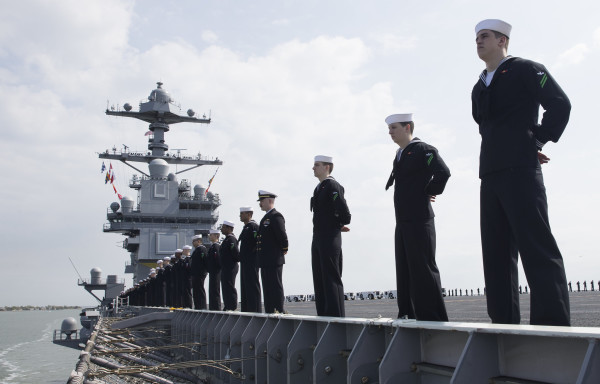

The Naval Criminal Investigative Service has a message for America’s sailors: Please, for the love of Poseidon and the Seven Seas, stop buying hallucinogens in the dark corners of the Internet.
NCIS last week issued a warning to sailors to the risks of acquiring LSD on the so-called “dark web,” the network of often-illicit sites accessible through specialized browsers that offer users “perceived anonymity.”
“Recent law enforcement reporting has revealed that an increasing number of people are moving to purchasing illicit substances via the dark web because of the perceived anonymity provided by tools like The Onion Router (TOR),” the NCIS notice reads. “While TOR offers anonymity by obscuring IP addresses, law enforcement use various investigative techniques to identify both purchasers and sellers.”
The notice doesn’t just address the foolishness of trying to acquire a Schedule 1 narcotic online, but the potential dangers to U.S. service members.
“Drugs purchased via the dark web are often laced with other substances in dangerous combinations that can lead to death,” the notice continues. “Additionally, international, federal, state, and local law enforcement are working collectively, using a variety of techniques to infiltrate marketplaces, identify users, and combat the illicit drug threat.”
Translation: You might get sick, and you’ll almost definitely get caught..
Unfortunately, NCIS has no way of really knowing authoritatively if the service is experiencing an uptick in LSD use: according to the agency, the Navy discontinued LSD testing in 2006 after a three-year span of urinalysis testing revealed only four LSD positives among two million samples.
But the warning, based on “recent law enforcement reporting,” comes on the heels of several worrying LSD-related incidents across the U.S. armed forces.
For the Navy in particular, a sailor assigned to the nuclear reactor department aboard the USS Ronald Reagan in March 2019 admitted to “wrongfully” bringing LSD aboard the aircraft carrier while docked at various ports across Japan.
Ten other sailors, all from the same department, had previously faced administrative discipline in 2018 for possessing and distributing LSD in connection to a drug ring aboard the nuclear aircraft carrier.
The prevalence of LSD in a critical nuclear-related facility is surprisingly not confined to the Navy: In May 2018, 14 airmen from the Air Force security units at F.E. Warren Air Force Base in Wyoming tasked with safeguarding nuclear missile silos were disciplined for dropping acid between shifts.
The fact that these LSD rings popped up in the first place isn’t surprising at all: as I previously wrote, the middle of nowhere is the same kind of boring and awful whether it’s patrolling the Pacific or guarding nuclear silos in America’s heartland.
But at the same time, maybe NCIS should loosen up a bit. After all, at least one Marine officer is convinced that LSD can help the United States win wars — and that’s just groovy, man.
Related: Marine officer: Let troops drop acid before they analyze intel
